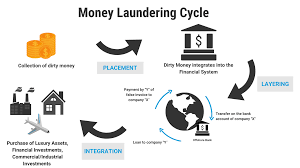Legal aspects of confiscation of corrupt objects or goods in the crime of money laundering
DOI:
https://doi.org/10.31943/gw.v14i3.522Keywords:
Confiscation of objects, results of corruption, money launderingAbstract
The criminal acts of corruption in Indonesia are currently at a dangerous stage because they have penetrated the foundations of the nation's life. For this reason, eradicating corruption is a top priority in the criminal justice system. This can be seen in Article 25 of Law Number 31 of 1999 concerning amendments to Law Number 20 of 2001 concerning the Eradication of Corruption Crimes, which regulates "investigations, prosecutions, and examinations at court hearings in Corruption Crime cases must take priority over other instances for quick resolution. The main issue that will be discussed in writing this thesis is how to prove the confiscation of objects of money laundering crimes originating from criminal acts of corruption based on statutory regulations and what is the role of the Corruption Eradication Commission (KPK) in confiscating objects or goods resulting from money laundering corruption. Therefore, the research aims to reveal the legal aspects of confiscating objects from money laundering corruption. This research uses a Statutory Approach, examining all statutory regulations related to the legal issue being handled. The conceptual approach departs from the views and doctrines that have developed in legal science. The birth of the independent Corruption Eradication Commission (KPK) in Indonesia has brought fresh air to society in dealing with criminal acts of corruption in Indonesia, both preventively and repressively.
Downloads

Downloads
Published
How to Cite
Issue
Section
License
Copyright (c) 2023 Andika Noviantoro

This work is licensed under a Creative Commons Attribution 4.0 International License.
The use of non-commercial articles will be governed by the Creative Commons Attribution license as currently approved at http://creativecommons.org/licenses/by/4.0/. This license allows users to (1) Share (copy and redistribute the material in any medium) or format; (2) Adapt (remix, transform, and build upon the material), for any purpose, even commercially.









